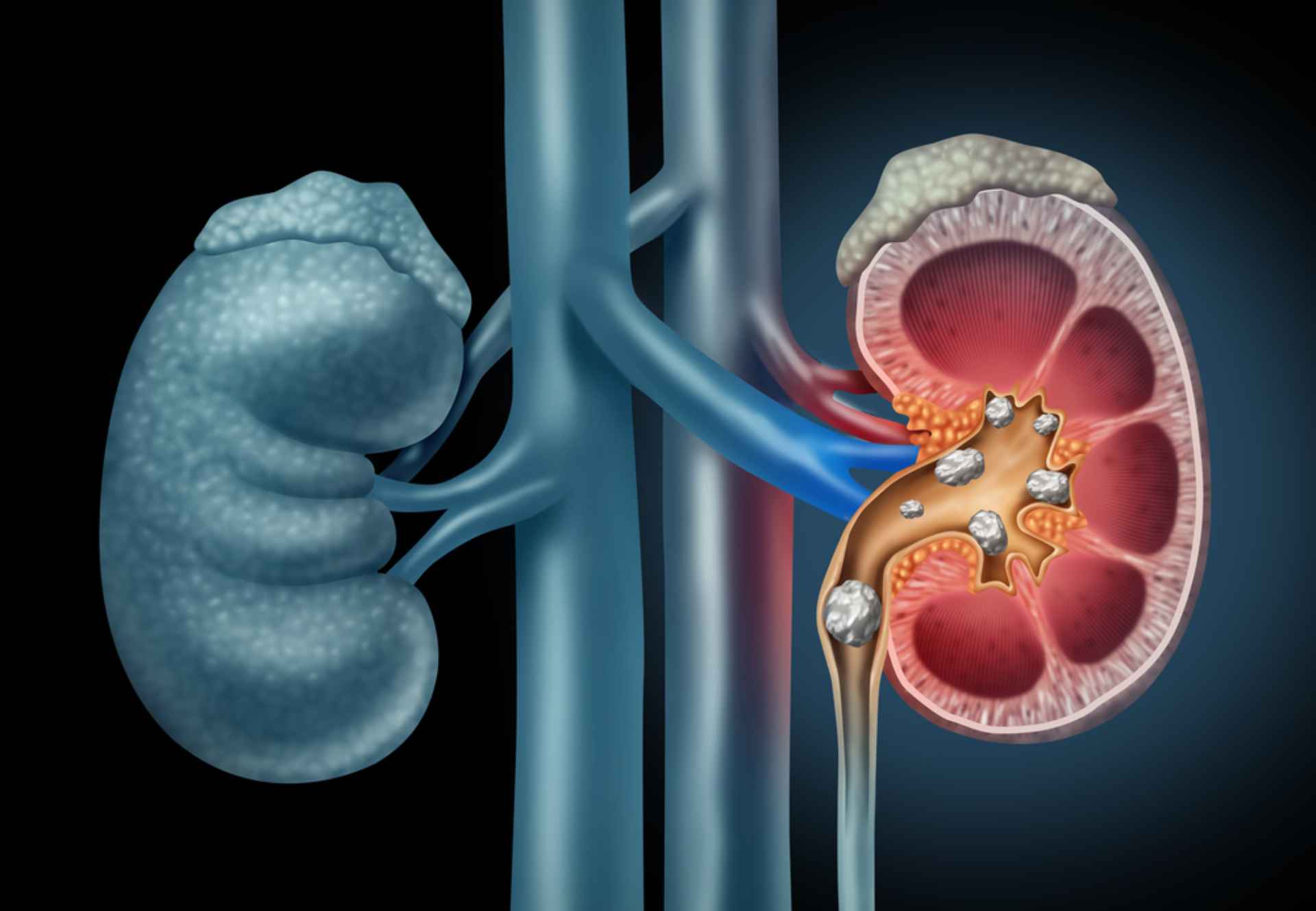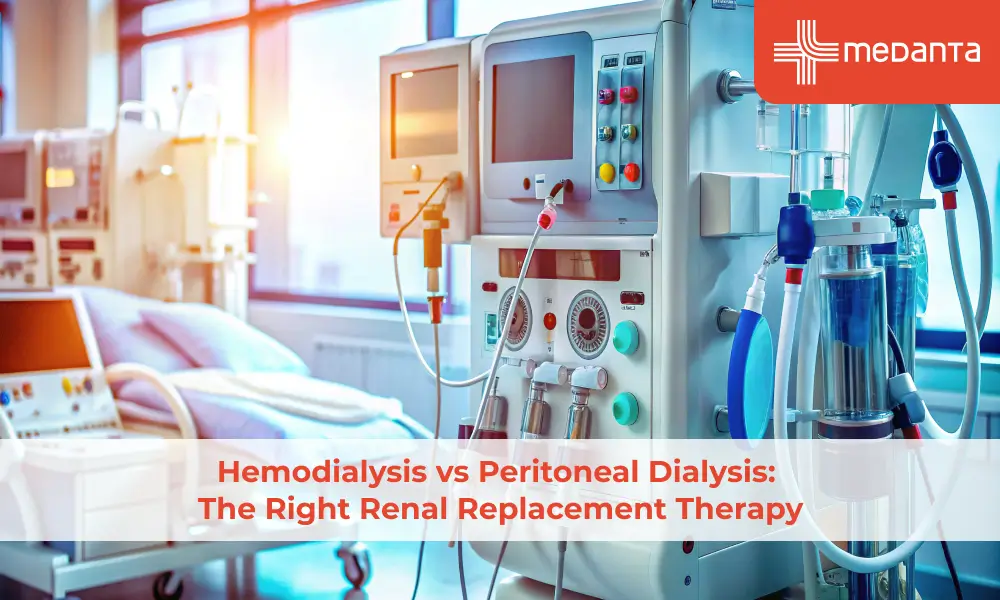The Under-recognised Epidemic of Chronic Kidney Disease

Overview
Chronic kidney disease or CKD is a significant cause of mortality globally. There is an under-recognised epidemic of chronic kidney disease worldwide that requires serious consideration. Chronic kidney disease can cause mortality and morbidity and affects the quality of life. Early diagnosis and treatment are important to control the epidemic of chronic kidney disease worldwide.
Introduction
Chronic kidney disease is a condition where the kidneys gradually fail to function. The function of your kidneys is to filter the excess water and wastes from your body in the form of urine. But when the kidneys fail to function correctly, fluids, wastes and electrolytes dangerously build up in the body. Chronic kidney disease exhibits very few signs and symptoms in the early stages. Sometimes, no symptoms are visible before the condition becomes severe. Chronic kidney disease treatment usually involves controlling the cause of the kidney disease along with replacing the function of the kidneys, if required. A timely chronic kidney disease diagnosis is essential to prevent it from becoming fatal.
Risk of chronic kidney disease
The risk of chronic kidney disease increases with age. Chronic kidney disease might also run in the family. Therefore, people who have siblings or a parent with CKD are at high risk of developing this ailment. Chronic kidney disease is more common in African-Americans, Asian-Americans and Native Americans.
Major risk factors of chronic kidney disease are as follows:
- High cholesterol
- Obesity
- Type 1 and type 2 diabetes
. Hypertension
- Cigarette smoking
- Obstructive kidney diseases such as bladder obstruction
- Cirrhosis or liver failure
- Bladder cancer
- Kidney infection
- Kidney cancer
- Kidney stones
- Vasculitis
- Autoimmune disease
- Scleroderma
- Systemic lupus erythematosus
- The artery supplying blood to the kidneys might become narrow
- Atherosclerosis
- Vesicoureteral reflux
Prevention of chronic kidney disease
Individuals with diabetes, heart disease and high blood pressure are more prone to chronic kidney disease. These health conditions should be treated to prevent onset of kidney disease. It is also essential to get the kidneys tested regularly because the early stages of many kidney diseases may not show any symptoms. Early chronic kidney disease diagnosis might prevent the kidneys from getting further damaged.
The following specific measures can be followed to prevent chronic kidney disease:
Consume a healthy diet: The choice of diet can affect health drastically. To keep the kidneys healthy, choose food items that are suitable for all the vital organs and promote heart health. Fruits, vegetables, low-fat dairy products and whole grains are ideal for the body. Food items with excessive salt and sugar and excess fat should be avoided. The daily intake of salt should ideally be less than 2300 mg per day.
- Lead an active life: Regular exercise is essential for maintaining overall health. You should indulge in a 30-minutes activity every day to stay fit and healthy. Engage in aerobic exercises, swimming, walking or running. Depending on your health condition, you can talk with your health care provider about the type of activity you can undertake.
- Maintain a healthy weight: Being overweight or obese can become a curse for many diseases such as chronic kidney disease or diabetes. Therefore, a healthy weight should be maintained while continuing a healthy diet.
- Get enough sleep: Getting sufficient 7 to 8 hours of sleep is essential for promoting kidney health. If you have any sleep issues, talk with your health care provider to resolve those issues.
- Stop smoking cigarettes: Tobacco is detrimental to kidney health. Therefore, you should stop cigarette smoking and seek help if you cannot quit smoking by yourself to prevent chronic kidney disease.
- Avoid stress and anxiety: Stress and anxiety are detrimental to the health of the kidneys. Stress levels should be managed to prevent chronic kidney disease. You should cope with your problems and relax through meditation. Physical activities, yoga and tai chi can also help reduce stress and anxiety and help you relax.
- Manage health conditions such as high blood pressure and diabetes: Diabetes and blood pressure are the major causes of chronic kidney disease. Therefore, if you have these health conditions, you can protect your kidneys by following specific measures:
Keep your diabetes levels under control. You should check your blood glucose regularly to avoid a spike.
Your ideal blood pressure should be below 140/90. You should maintain this measurement to prevent chronic kidney disease.
You should take all your medicines as prescribed by your health care provider. You should avoid the regular consumption of nonsteroidal anti-inflammatory drugs such as ibuprofen or naproxen as they can damage your kidneys.
- Limit alcohol intake: Drinking alcohol can increase your blood pressure and weight, putting pressure on your kidneys. Therefore, limit your intake of alcohol to prevent chronic kidney disease.
Treatment of chronic kidney disease
Until now, there has been no cure for chronic kidney disease until now, but you should not panic. There is treatment possible to relieve the kidney disease from getting worse. A timely chronic kidney disease diagnosis helps relieve the symptoms before it is too late. The treatment of chronic kidney disease depends on its stage:
- The medicines for chronic kidney disease include those for high blood pressure, high diabetes, and high cholesterol.
- Lifestyle changes can help you stay healthy and control symptoms.
- You might have to opt for dialysis in the advanced stages of chronic kidney disease. Dialysis helps to restore certain kidney functions and removes excess water and waste products from the body.
- A kidney transplant might be needed in the advanced stages of chronic kidney disease.
Conclusion
Chronic kidney disease is not curable, but a healthy lifestyle can improve your quality of life and increase your life expectancy. You should quit drinking and smoking and consume healthy food items such as fruits and vegetables. Limit your salt intake to less than 1 teaspoon a day. You should lead an active life and reduce stress and anxiety.






